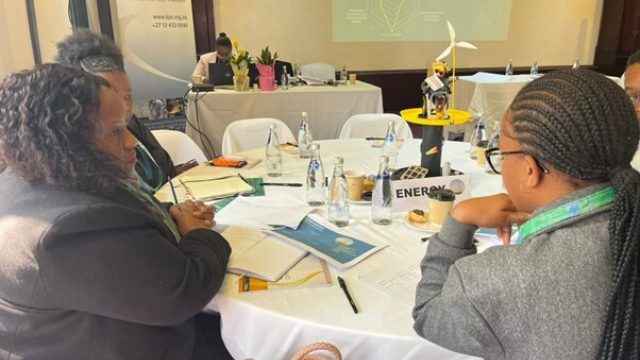Green Economy Coalition responds to the Rio+20 negotiating text

These world summits only come round every ten years. This text needs to be as bold, visionary and urgent as the moment demands. This is one step forward. There are three more to go: This plan needs to be financed; have clearer responsibilities; and it needs to have a much more urgent timescale.
- Oliver Greenfield, Green Economy Coalition
The zero draft text released this week by the UNCSD Bureau for the UN conference on sustainable development (Rio+20) shows some significant progress on the transition to a greener and fairer economy. We are encouraged by the Bureau’s support for Sustainable Development Goals, beyond GDP metrics, corporate reporting, sustainable consumption and production, job creation, valuing natural capital, sustainable public procurement, fiscal reform and the need for public participation, all of which we have actively promoted over the last six months.
However, given the scale of the challenge ahead of us, the current draft fails to deliver an urgent and clear action plan to implement the changes that are required. We urge governments to address the following questions in the next draft:
- How are we going to kick-start the financing of a green and fair economy in order to create long term investor confidence?
- How can we ensure that the poorest benefit from and are supported through the transition to a green economy?
- How will green economy improve the management of our natural world?
- How will governments grow green and fair industries and markets?
- How can we integrate the proposed initiatives of corporate, national and global metrics so we start measuring and tracking what matters in a coherent way?
"The Zero Draft touches on many of the right issues. However it is lacking in urgency, ambition, and substance. We need far greater attention given to the problem of how to mobilise the finance needed to invest in the natural world in order to reverse widespread ecosystem decline’
- Victor Anderson, Senior Policy Officer, WWF-UK
"The zero draft text is a good start, but there is a long way to go until governments agree a consensus text in Rio in June. By then many of the ambitious ideas set out here may have been struck out by negotiators, or perhaps bold concepts will be added. There is much to play for over the next five months if we are to achieve a summit outcome which matches the scale of our current challenges and collective aspirations for a fairer, more sustainable way of life’
- Camilla Toulmin, Director, International Institute for Environment and Development (IIED)
"Governments have an opportunity at Rio+20 to make the urgent change to a green and sustainable economy. The Zero Draft is a good start, and governments now need to build on the experience of the private sector and existing governmental policies, and agree on a global decision requiring all listed and large private companies to disclose sustainability information or explain why if they do not."
- Teresa Fogelberg, Deputy Chief Executive, Global Reporting Initiative (GRI)
"The Zero Draft includes many key issues but needs to stress further reforms in global finance to: reduce speculation, mal-investment in unsustainable ventures, high-frequency computerized trading, regulatory capture and arbitrage, tax-havens and offshore finance, all of which pervert the useful role of financing real, productive economic activities and needed investments in the green economy future rather than futile efforts to bail out the unsustainable, fossilized economies of the past'
- Hazel Henderson, President, Ethical Markets Media


